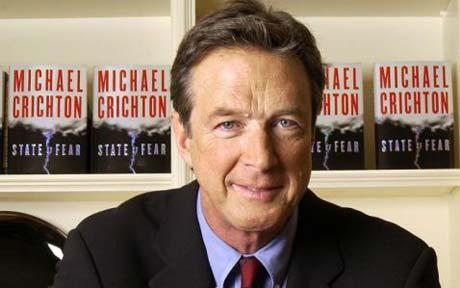America loses its moral technologist: Michael Crichton


Author, Producer and Director Michael Crichton, 1942-2008. Photo: Associated Press
With election week and coverage of other events such as the Microsoft PDC and the latest Windows 7 builds, many of ZDNet's readers may be unaware that one of America's most foremost and successful writers of speculative fiction, Michael Crichton, passed away at the age of 66 this Tuesday, November 4th from a private battle with cancer.
Click on the "Read the rest of this entry" link below for more.
Crichton may not be a name that is known to many of ZDNet's younger readers, but his works most definitely are. Educated as a medical doctor at Harvard Medical School, Crichton was the creator of the popular television series ER. However, many will also remember him for his books and movies such as The Andromeda Strain, Coma, Westworld, Jurassic Park, Disclosure, State of Fear, Prey and The Lost World, that utilize a common plot element found in many of his works, which is what happens when science, technology and man's thirst for power and greed mix and go completely awry.
It could be said that Crichton was a very different type of Science Fiction/Speculative Fiction author than the other kinds I tend to read. There's no question that out all of them, he was probably the most financially successful and most widely read -- which doesn't diminish the impact or the importance of his work, but I think defined his target audience. The type of fiction which Crichton wrote was probably more accessible or more readable to the everyman than many hard-core SF writers of his own generation or generations past, and I think that in and of itself is an important accomplishment. Getting 150 million copies of your books read is certainly nothing to scoff at.
A signature Crichton novel is marked by its fast pace and engrossing plot, which is why he was so good at what he did and why his books sold so well. Unlike say, a Tom Clancy tome, which is the sort of best-seller you really have to pick up and put down a few times due to their complex storyline and lots of technical mumbo-jumbo -- I found myself reading Crichton's books in just a sitting or two, because they were so engaging and gripping and I just had to read the next chapter, until I was done. This in itself is notable because his best books were well over 400 pages long.
What made Crichton a great sit-at-the beach and read a book one afternoon on vacation type of novelist was how he interpreted current trends in science and technology and communicate that in a gripping yarn. While Crichton had MD street creds, and researched the technology and science he wrote about, he wasn't the kind of visionary that say, Arthur C. Clarke was, who literally predicted trends and inspired progress that followed decades after he wrote about them. Instead, Crichton chose to write about believable, near-future and bleeding-edge subjects that while certainly fantastic, were still within the realm of the plausible. Biotechnology, Genetic Engineering, Nanotechnology and Cybernetics all were fair game, and their within-our-grasp reality is what made many of them all the more scary as speculative fiction.
If you could sum up Crichton in a nutshell, he was America's moral compass that kept our scientific and technological desires to play God in check.
And for that he will be missed. Talk Back and let me know.